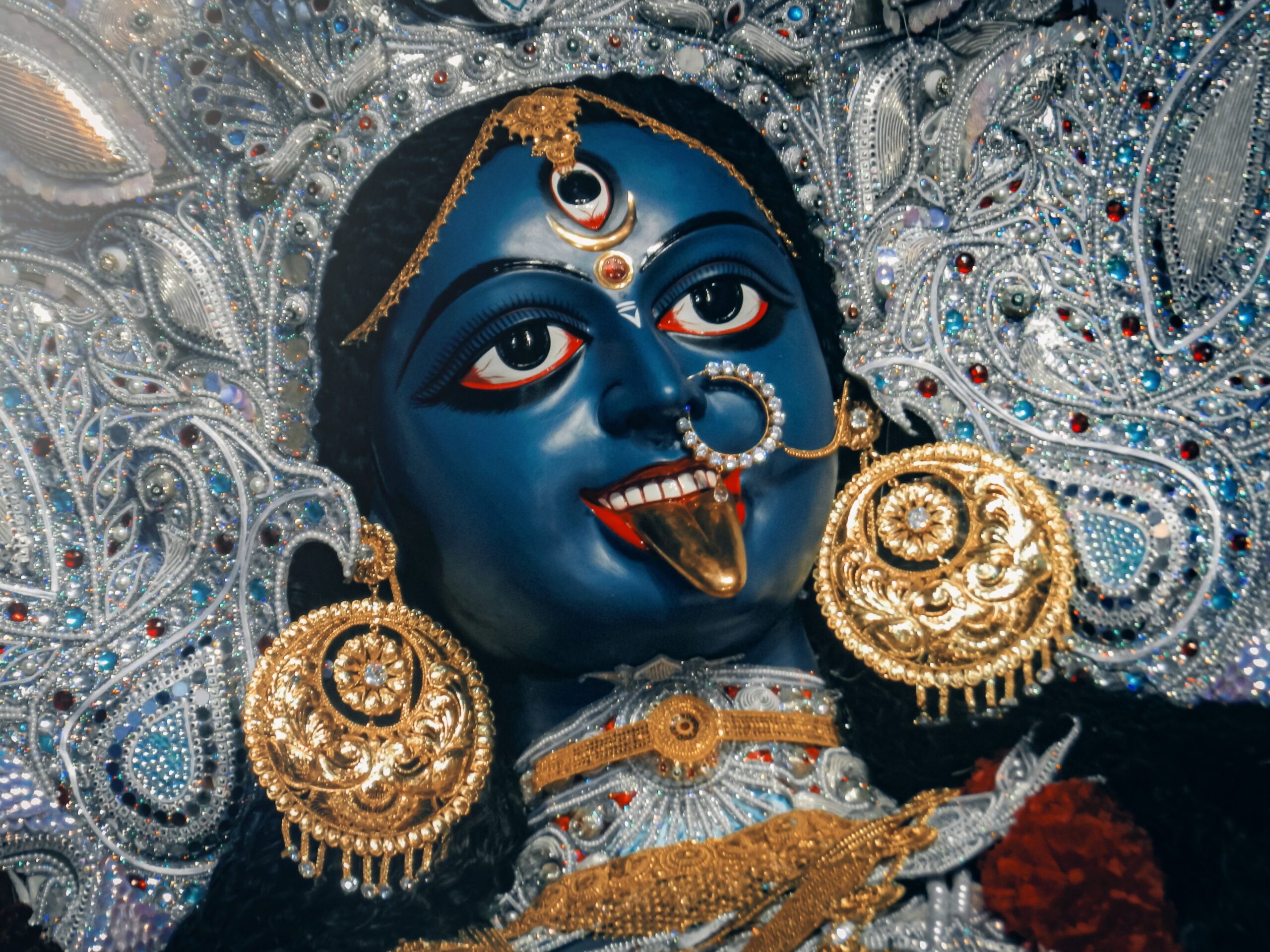Maa Kali, the formidable goddess of time and transformation, has a rich and intriguing origin rooted in Hindu mythology. Her story is one of complexity and symbolism, resonating with profound lessons about the cyclical nature of existence and the power of fierce determination. Let’s explore the origins and mythology of Maa Kali.
The Emergence of Maa Kali
Maa Kali’s mythological roots can be traced to the Devi Mahatmya, a sacred text within the Markandeya Purana. According to this scripture, Maa Kali came into being during a battle between the gods and the demon Raktabij. Raktabij possessed a unique power: every drop of his blood that fell to the ground would give rise to a new demon. The gods found themselves unable to defeat him until they invoked Maa Kali.
The Battle with Raktabij
In the fierce confrontation that ensued, Maa Kali demonstrated her terrifying form. She emerged as a dark-skinned goddess, her appearance and behavior unsettling to the gods and demons alike. However, during the battle with Rattabij, it was this ferocity that led to her success. She devoured Raktabij’s blood as it spilled from his wounds, preventing him from regenerating and ultimately defeating the demon. This act of annihilation symbolized her role as the goddess of destruction and transformation.
The Symbolism of Maa Kali
Maa Kali’s symbolism goes beyond her fearsome appearance. Her dark complexion represents the eternal night, signifying the passage of time and the impermanence of the material world. Her garland of severed heads and skirt of human arms symbolize the destruction of ego, ignorance, and attachment.
The Cosmic Dance of Creation and Destruction
Kali’s mythological significance extends to her cosmic dance, the Tandava. This dance represents the eternal interplay of creation and destruction, highlighting that the universe undergoes continuous cycles of birth and death. Kali embodies the transformative power of time and change, ultimately leading to liberation and spiritual growth.
Maa Kali’s origin and mythology reflect the profound and cyclical nature of existence. Her fearsome appearance and fierce demeanour embody the transformative power of time and the inevitability of change. Devotees turn to her for strength, guidance, and protection, recognizing that Maa Kali, the goddess of both destruction and creation, inspires them to confront challenges, eliminate negativity, and embrace profound transformation.

